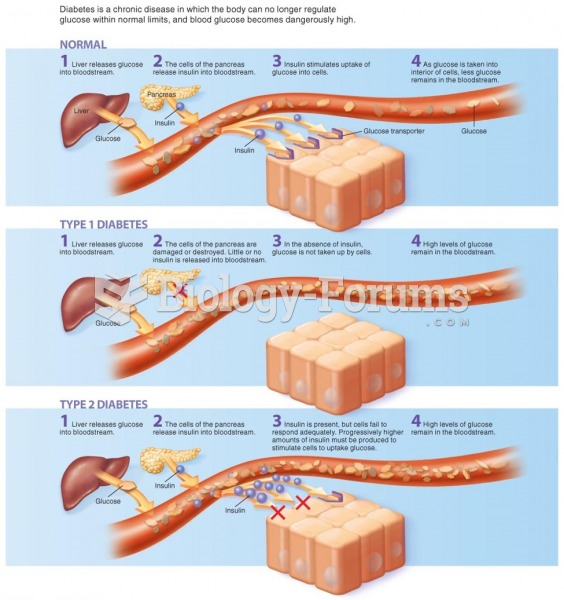Answer to Question 1
Answers may vary. Maintaining a near-normal level of blood glucose can often prevent complications associated with diabetes. When diagnosed with type 1 diabetes, a person must learn to balance insulin treatments with a healthy diet and physical activity. A medical device called a glucometer helps those with type 1 diabetes monitor the concentration of glucose in the blood so they can know how much insulin to administer. Using a small sample of blood, these user-friendly devices provide immediate feedback regarding an individual's blood glucose levels. In the case of type 2 diabetes, one can often control blood glucose through a combination of weight management, regular exercise, and a healthy diet. In fact, most of the nutritional guidelines developed to manage type 2 diabetes can also be applied by anyone who wants to maintain good health and eat a balanced diet that emphasizes fruits, vegetables, whole grains, legumes, low-fat dairy products, low-fat meat, and foods prepared with minimum amounts of added sugar.
Answer to Question 2
Answers may vary. Once disaccharide and starch digestion is complete, the resulting monosaccharides (glucose, galactose, and fructose) are taken up by the cells lining the small intestine and subsequently released into the blood. The blood then carries the monosaccharides directly to the liver. A rise in blood glucose levels can be detected shortly after you eat most carbohydrate-rich foods because monosaccharides enter the bloodstream relatively quickly after consumption. However, not all carbohydrates have the same effect on blood glucose levels. Some foods cause blood glucose levels to rise quickly and remain elevated, while others elicit a more subdued or gradual increase. The rise in blood glucose following the ingestion of a food is called the glycemic response. Scientists have long believed that simple carbohydrates cause a greater glycemic response than complex carbohydrates.







